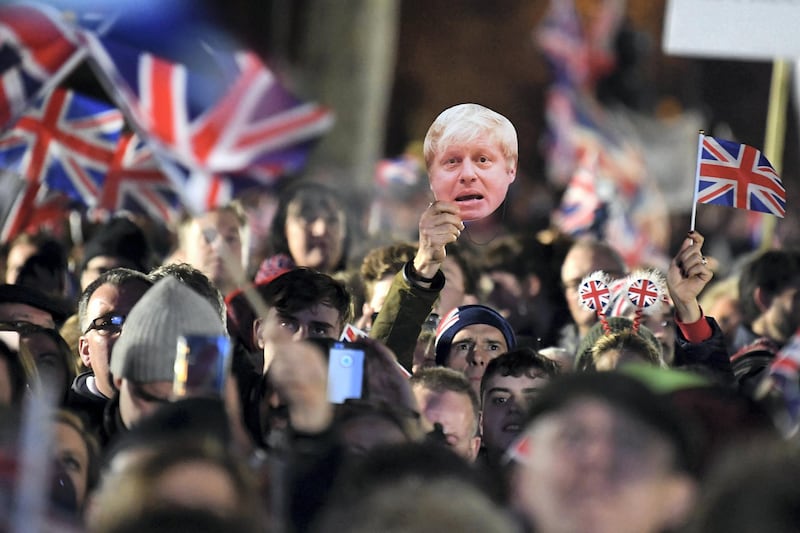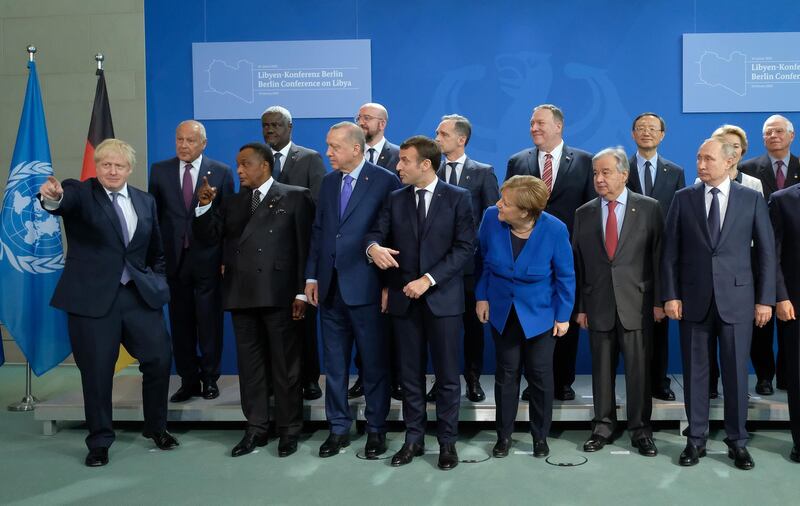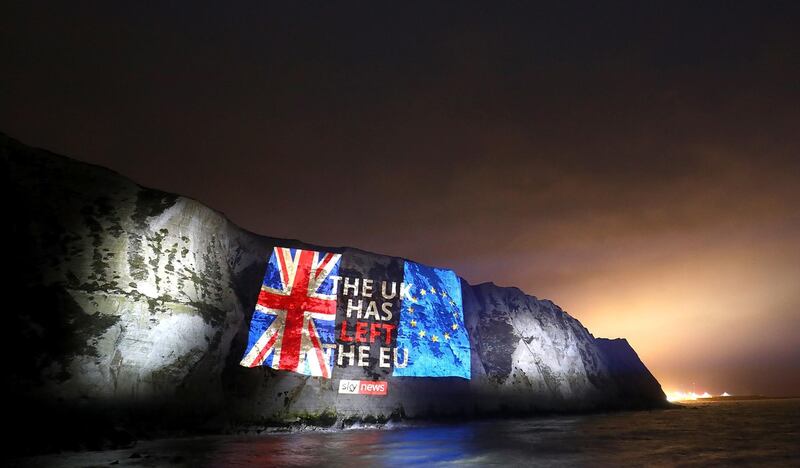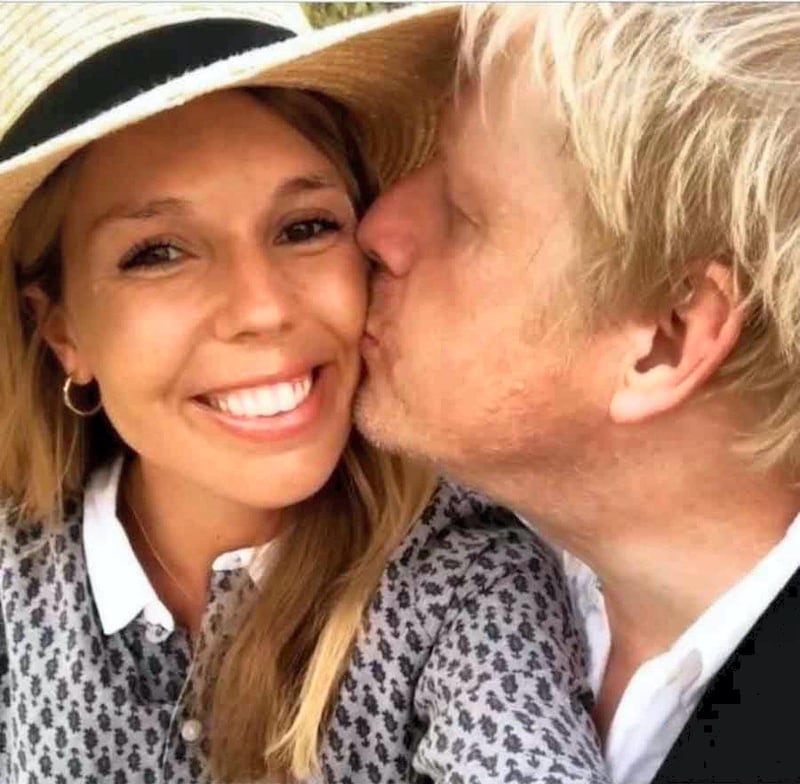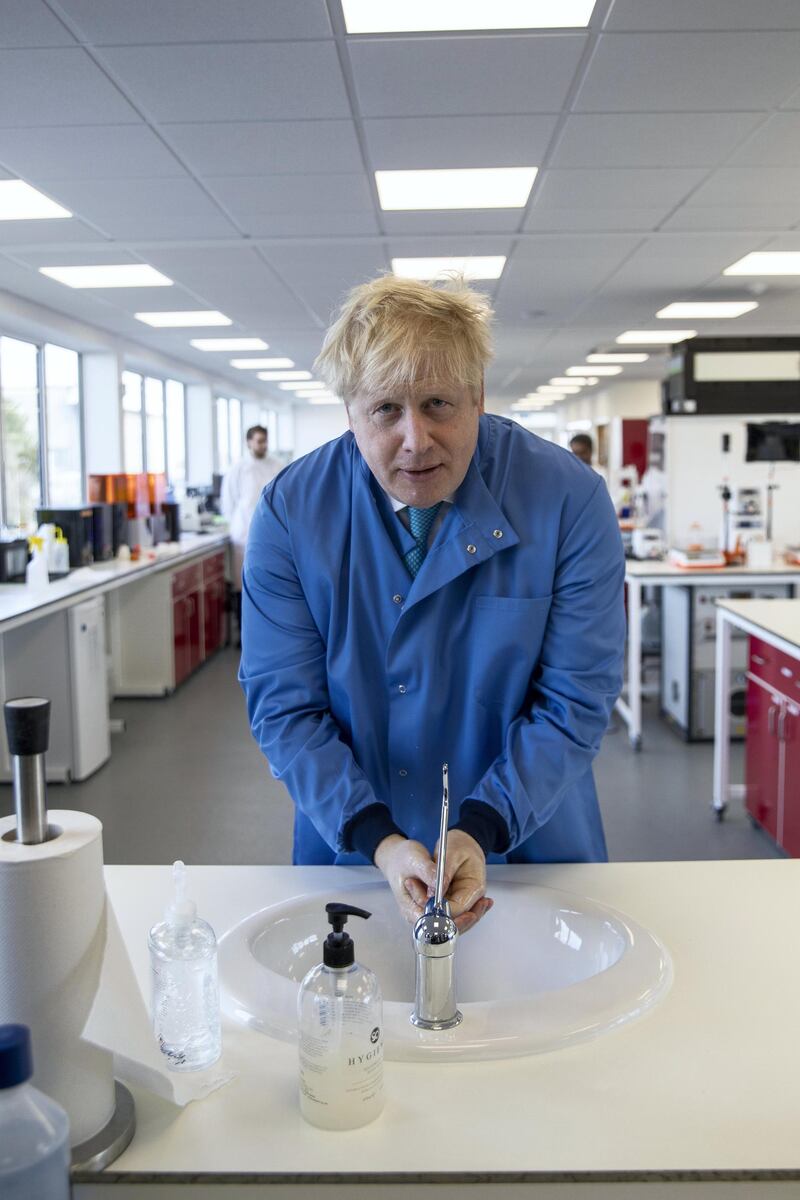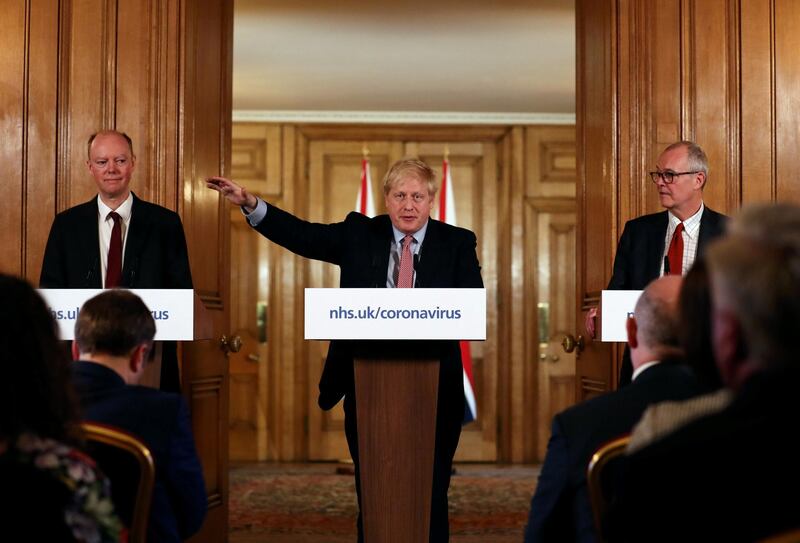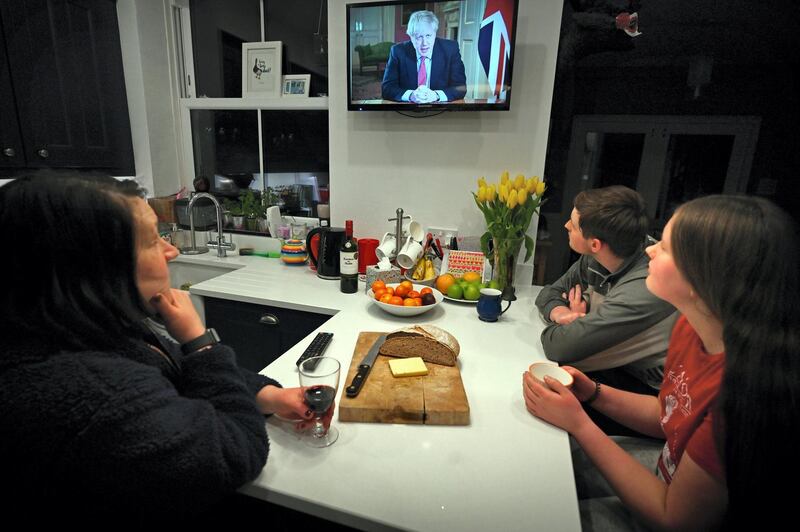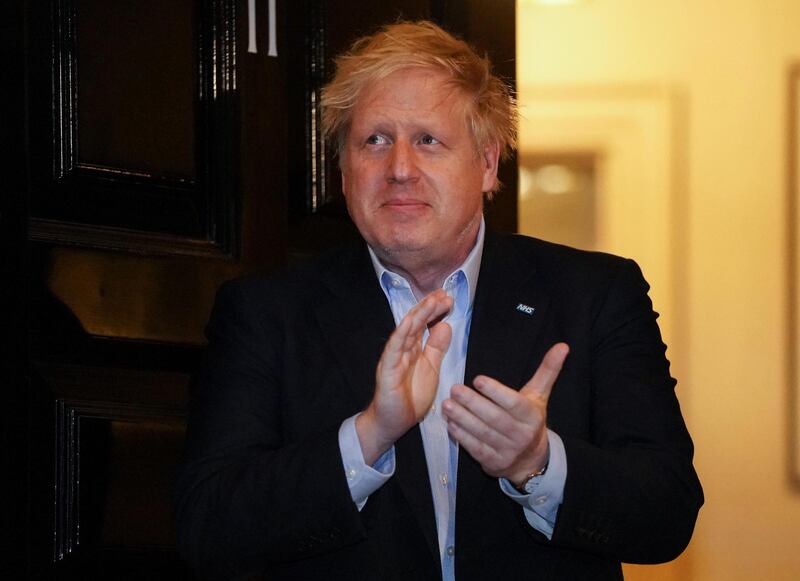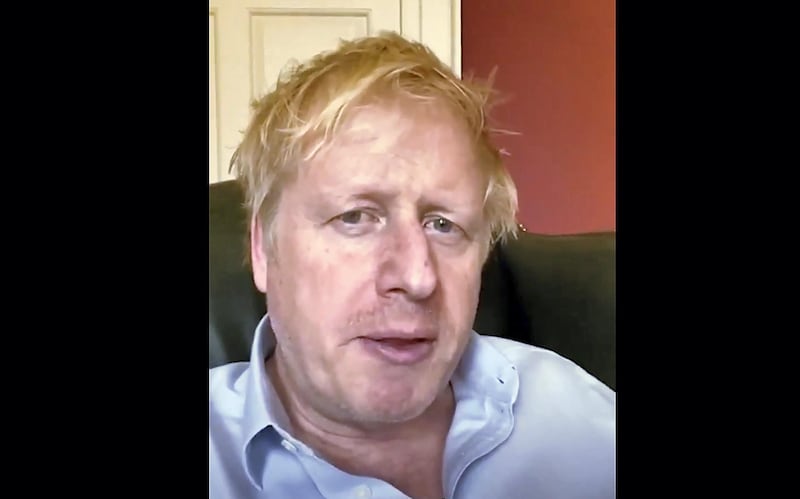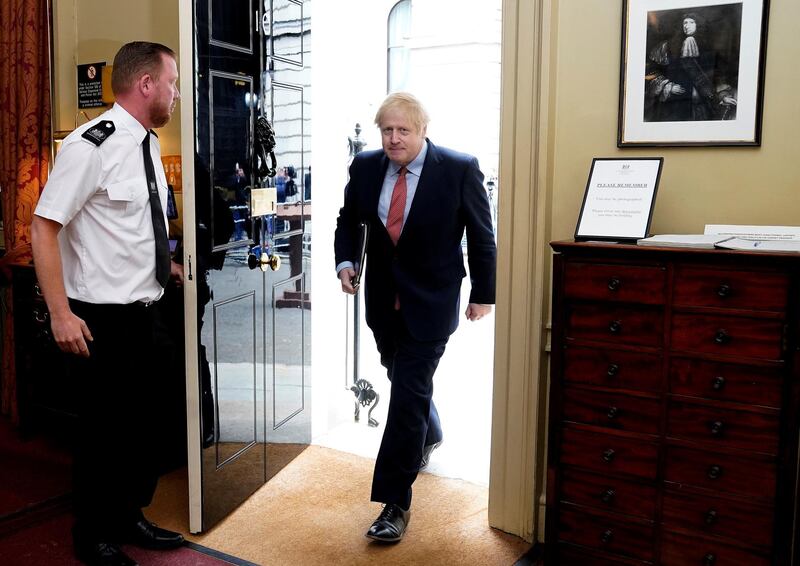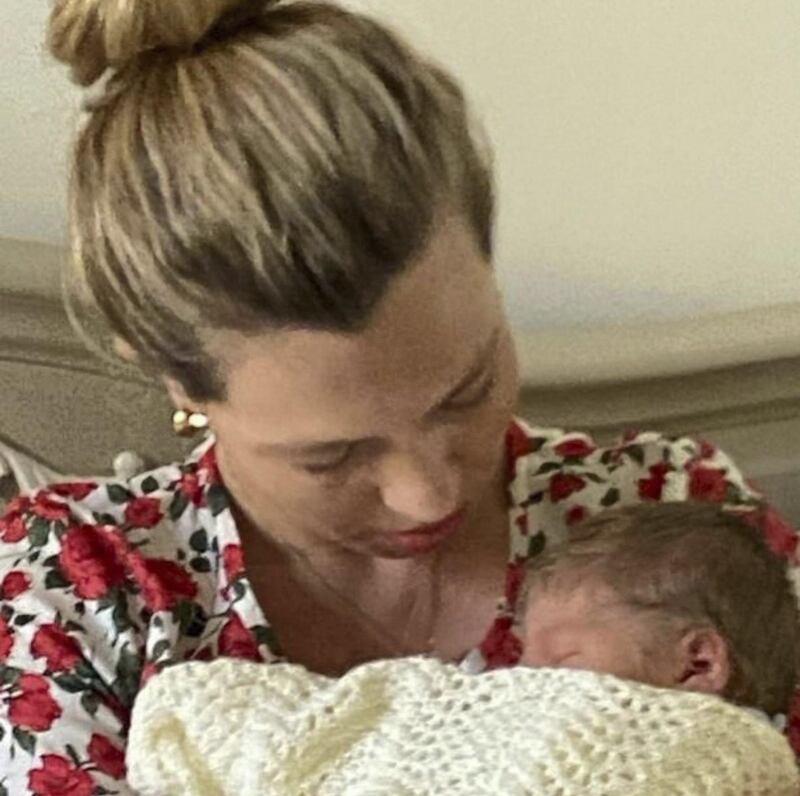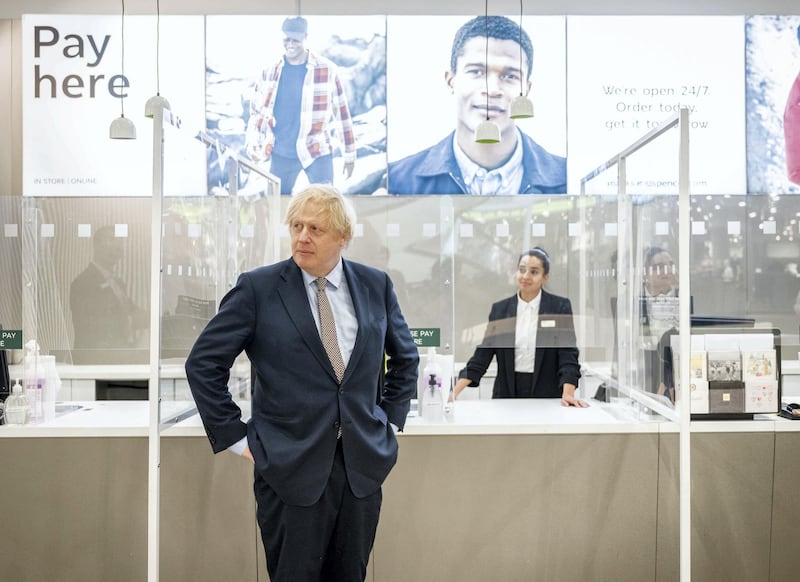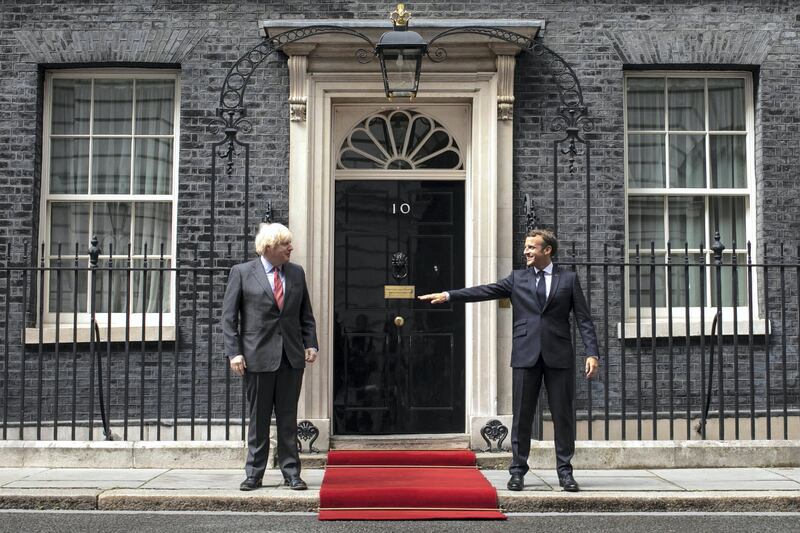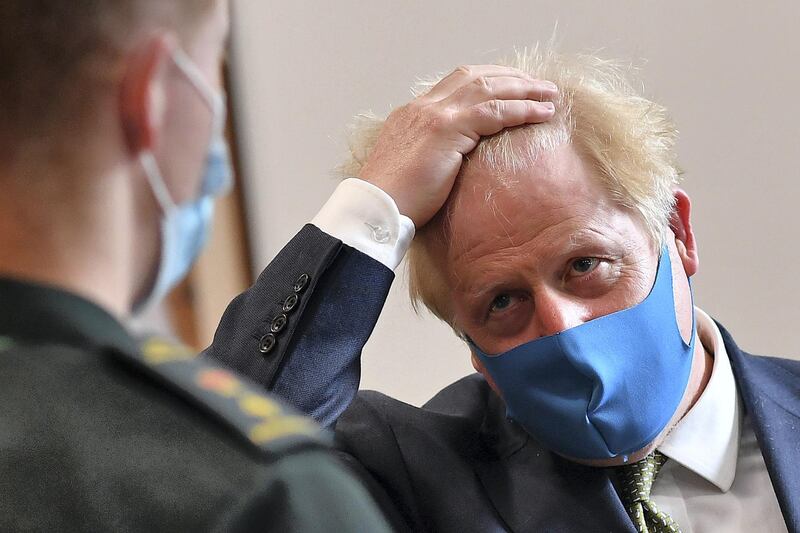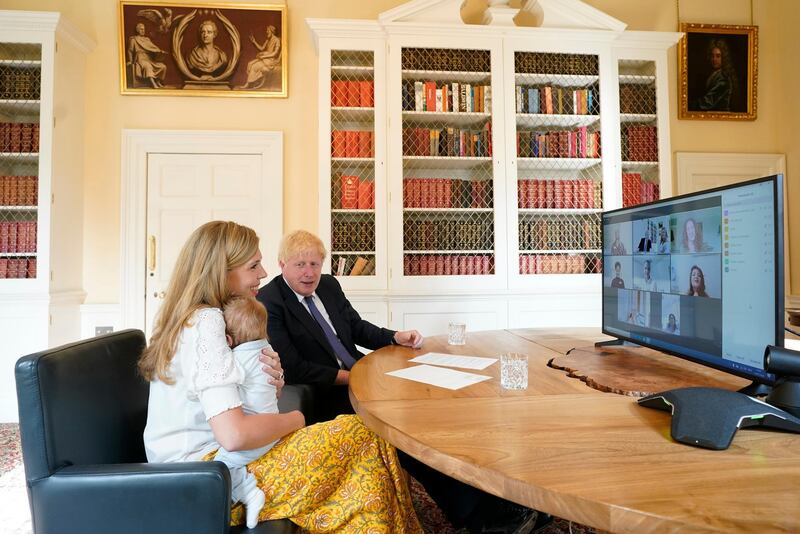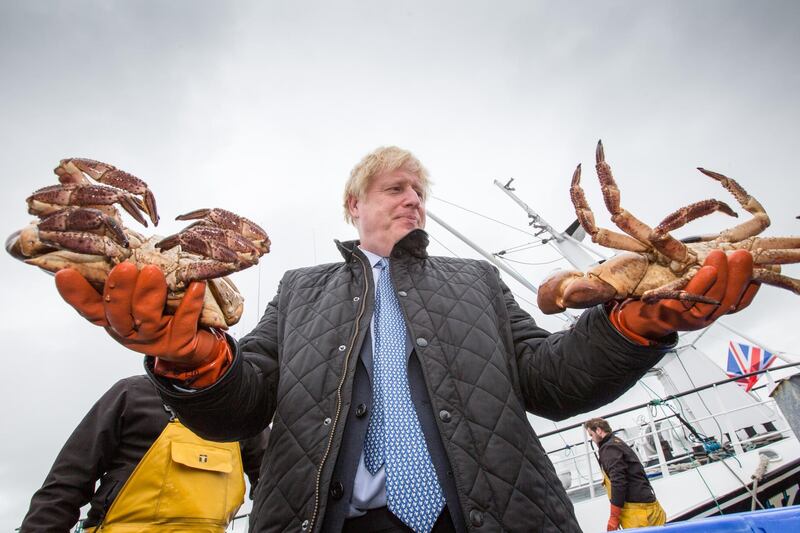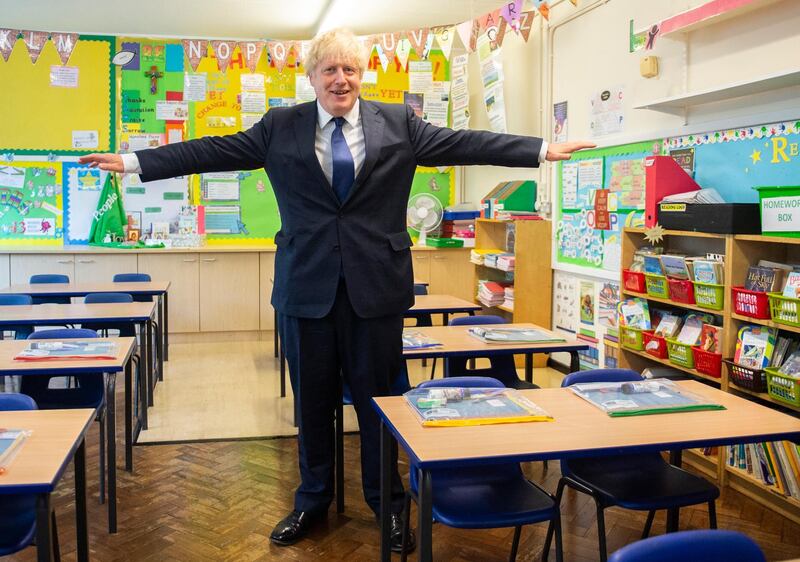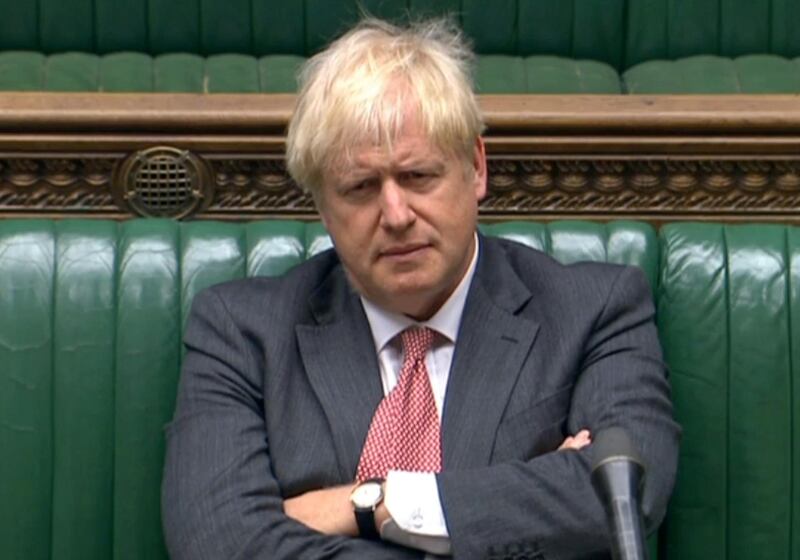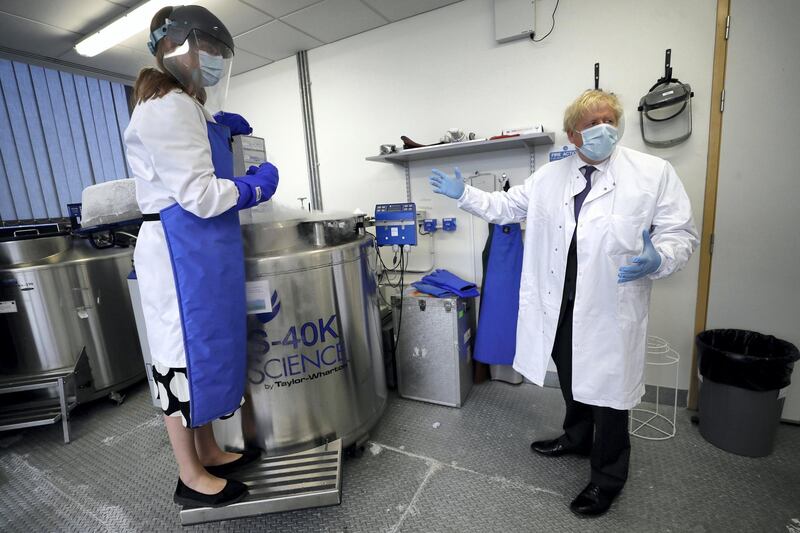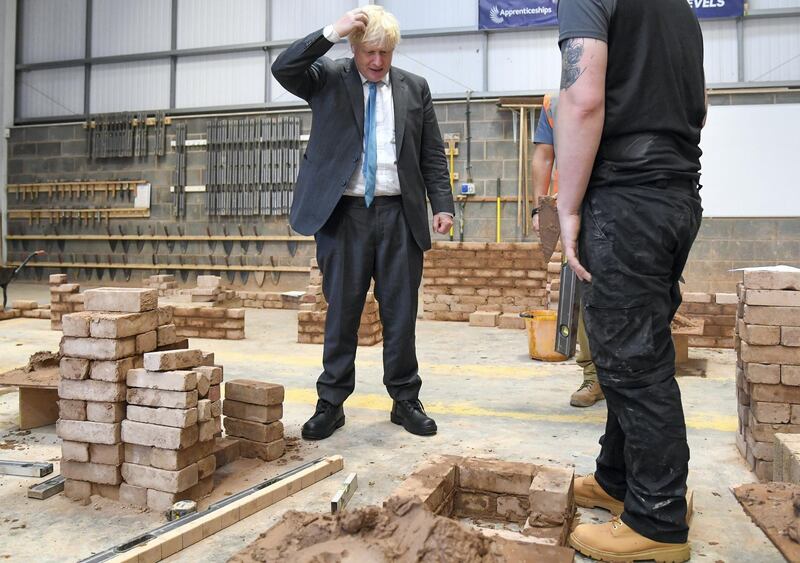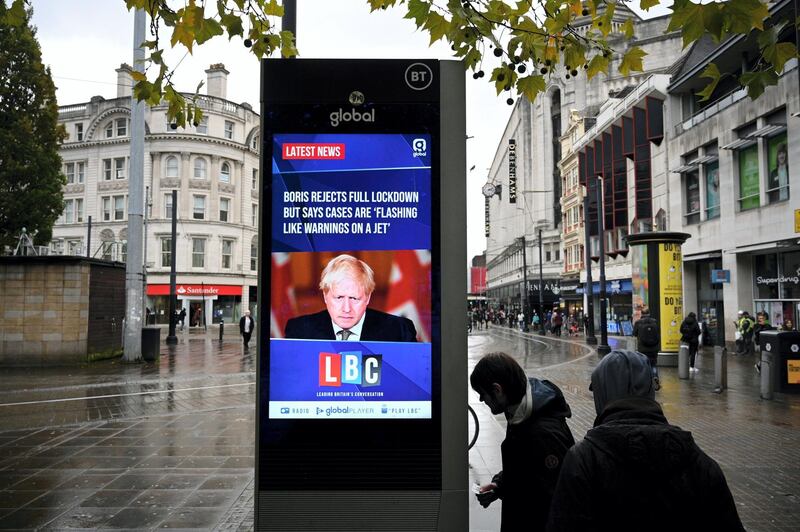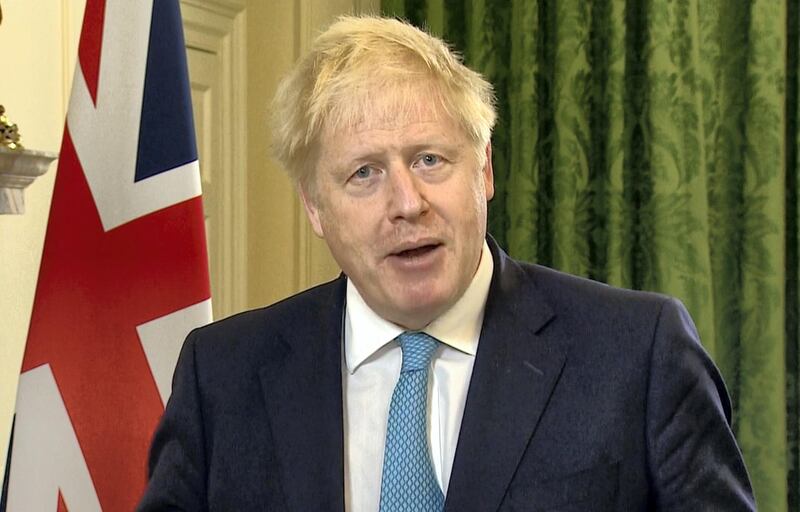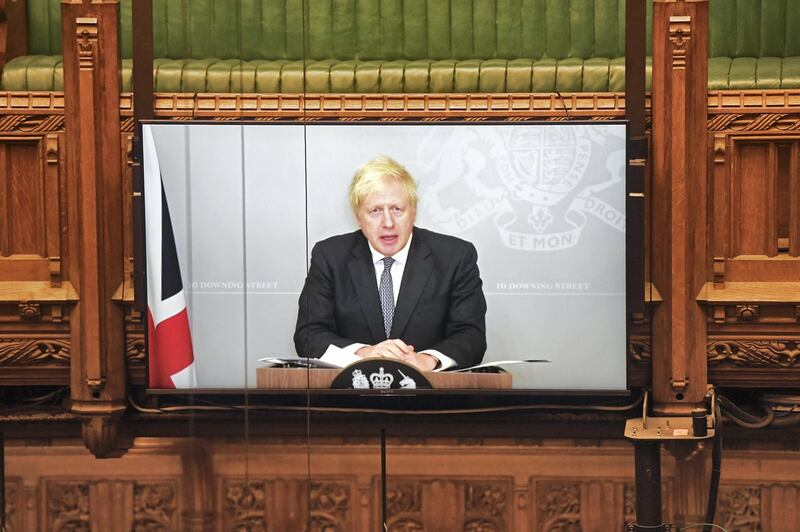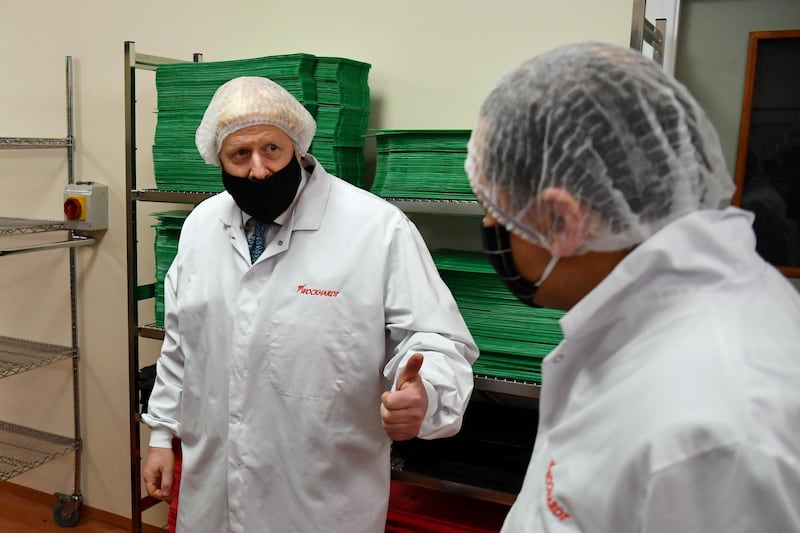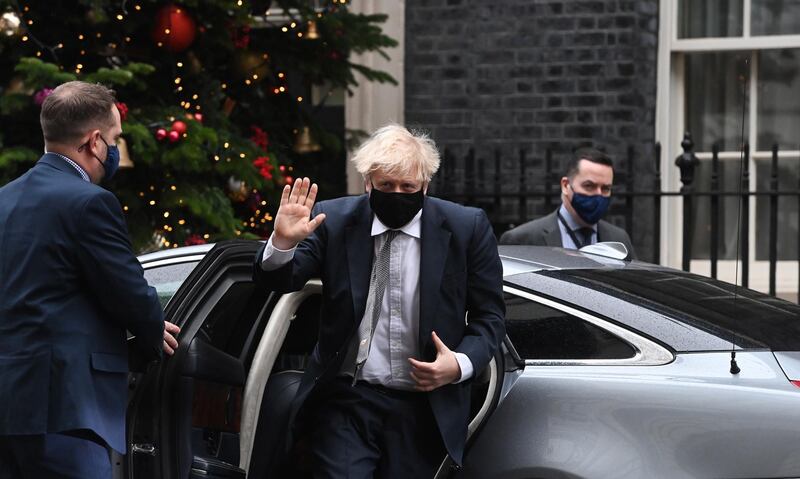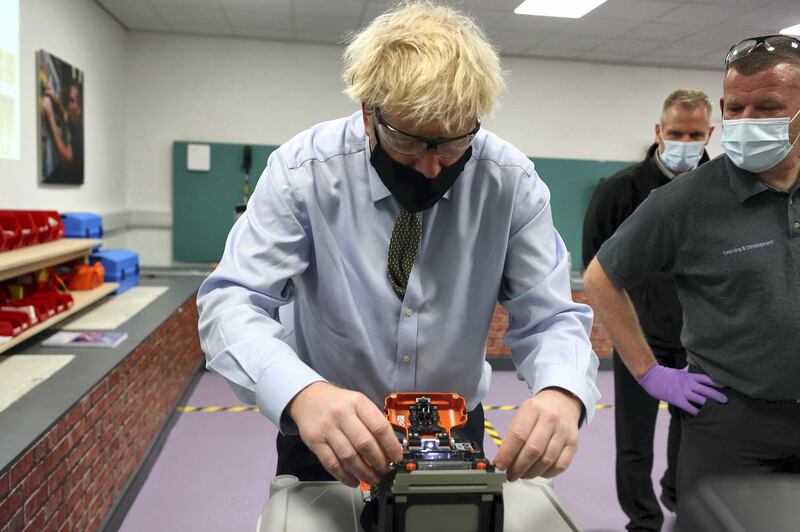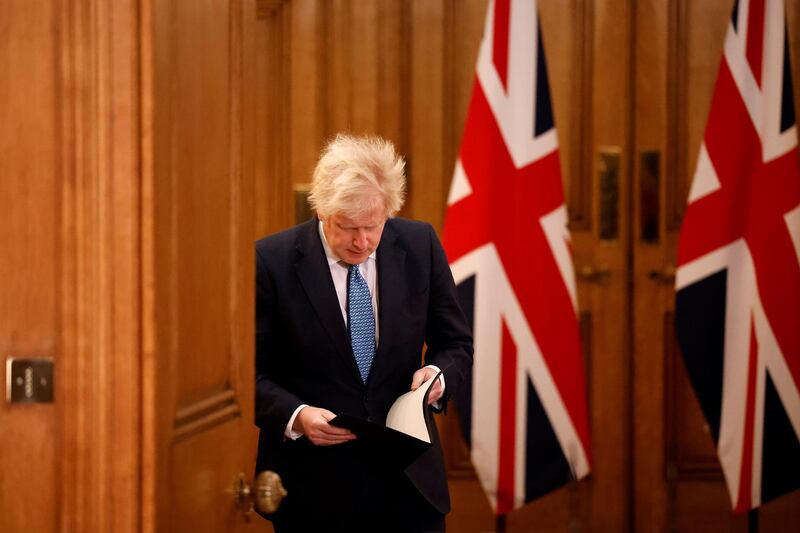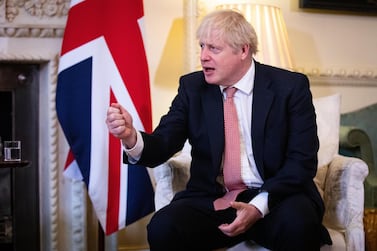Boris Johnson has said his personal recovery from the Covid-19 disease is driving efforts to ensure that the world is never again hit so hard by “a tiny pathogen” that has devastated society.
The British prime minister used an interview with The National to reveal how his personal experience is helping him rally international backing for his recovery plans - including universal access to any potential vaccine.
“I’m determined that the UK will drive forward the effort to find a vaccine, repair the global economy and prevent future health crises," Mr Johnson said.
“As a leader, that experience renewed my resolve to protect the public and our health system while ensuring that the economy stays afloat. It’s a difficult balancing act facing every government around the world today.”
Mr Johnson contracted the virus and was admitted to intensive care in March. On his release he admitted his fate had hung in the balance and paid tribute to the health care professionals who had looked after him.
That experience has informed his thinking ever since. With the country set to take leadership of the G7 and chair the global climate change conference COP26 in 2021, Mr Johnson believes London will play a pivotal role in how the recovery takes shape.
“I have set out a five-point plan to prevent future pandemics," he said. "It includes proposals like developing a worldwide network of zoonotic hubs to spot diseases before they leap from animals to humans, a pandemic early warning system and measures to reduce trade barriers on health-critical items.
“The UK will work with our international partners to put this plan into action. The basic functions of our societies have ground to a halt thanks to this tiny pathogen – we can’t allow that to happen again.”
The 56-year old, the first sitting British prime minister to be interviewed by The National, said he wanted to develop the links between the UK and its friends in the Arabian Gulf area.
“The UK’s partnerships with Gulf nations are incredibly important for our prosperity and security,” he said. “Some 175,000 British nationals live in the Gulf, and before Covid affected all our lives, one million Brits visited each year – to do business, forge relationships and enjoy some of that fabled sunshine.”
Mr Johnson looked ahead to next month's Riyadh G20 summit as a key moment for co-ordinated international efforts to repair the damage wrought by the virus.
“The priority for the UK is for the G20 to reach agreements on health, the economy and climate,” he said. “This includes global access to any coronavirus vaccine, debt financing for developing and middle-income countries, and tangible measures to tackle climate change.
“This should be underpinned by a continued commitment to free trade as the basis for a strong and sustainable recovery.”
He added that he saw the summit as a “as a key moment to address issues of global importance,” including how the world “drives a green economic recovery from coronavirus”.
With the pandemic forcing world leaders to take to their laptops for the summit – “Zoom conferences are never quite the same as meeting in person” - Mr Johnson believed it was still “a great opportunity for our hosts Saudi Arabia to showcase their vision for the future”.
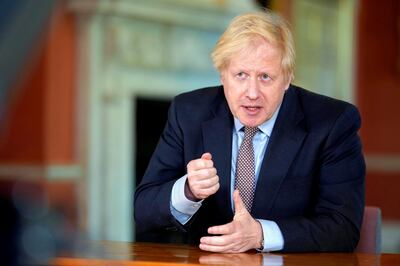
Turning to British foreign policy, Mr Johnson vowed that Britain would not be complacent in dealing with Iran following the expiry on Sunday of the UN arms embargo on the country.
Asked if he was worried Iran might obtain more sophisticated weapons from Russia and China, he stated that this would be unlikely. “Come the end of this month significant restrictions will remain on Iran’s ability to trade in arms, both from remaining UN restrictions and from its economic situation.”
Having served as Foreign Secretary at the time Donald Trump, the US president, ordered the withdrawal from the 2015 JCPOA nuclear deal with Iran, Mr Johnson has been deeply involved in how to handle the deep divisions over the accord.
Britain remains committed to working with France, Germany and the US to find a “sustainable solution to Iranian weapons proliferation” following the failure to agree a new United Nations Security Council resolution on the embargo. Mr Johnson acknowledged the challenge that development posed for the region.
“I’ve voiced my concern on many occasions about the destabilising role Iran plays in the region. We’re working hard, including at the UN, to find a constructive solution to address the threat to security posed by the expiry of the arms embargo.”
He was unambiguous in responding to a question on whether Britain and the US would continue the strong defence relationship with the region in regards to ISIS and Iran. “Absolutely!” he replied. “Working together to tackle shared security challenges is a cornerstone of Britain’s relationship with many Gulf states. This partnership is vital for the safety and security of the UK and is something we want to continue to develop.”
He added that Britain stood alongside its Gulf partners “in condemning Iran’s destabilising behaviour,” and that Tehran faced a choice: “Ratchet up its approach and face growing isolation, or it can come in from cold and work with the international community.”
Turning to the recent agreement between the UAE, Bahrain and Israel, Mr Johnson said he welcomed the Abraham Accords “as a positive step on the path to peace” by normalising relations. “Co-operation and dialogue must win out over hostility and division.”
He also hinted that there may be further announcements to come to increase engagement in the process that has led to stronger ties across the region. “We are exploring areas where the UK can work with all three countries to deepen that cooperation.”
Mr Johnson said he “strongly welcomed” the suspension of Israel's further annexation plans that came at the same time. “I hope that we see further progress, including a halt to settlement activity and a move by other states in the region to normalise relations,” he added.
Britain would also maintain its longstanding position on the Middle East Peace Process. “We support a negotiated agreement leading to a safe and secure Israel living alongside a viable and sovereign Palestinian state. This would be based on 1967 borders with agreed land swaps, Jerusalem as the shared capital of both states, and a fair settlement for refugees.”
He added that London would be willing to assist in discussions that would lead to the revival of direct negotiations. “Ultimately, there is no substitute for direct talks between the Palestinians and Israelis and we must back any effort to bring the two parties together. The UK stands ready to help facilitate meaningful dialogue in any way that we can.”
Recalling the UAE’s gift of 100 tonnes of protective equipment at the height of the spring Covid-19 crisis, Mr Johnson was cheered by this, calling it “a bright spot of cooperation and friendship” at a time when the virus was spreading rapidly.
We are going to defeat this virus, and transform this country for the better 🇬🇧 #BuildBackBetter pic.twitter.com/XMYzeQ4pd0
— Boris Johnson (@BorisJohnson) October 6, 2020
Looking to the future recovery that he seeks to spearhead, he was saddened that “too often countries have operated on the principle of "every man for himself’”.
“As I said in my address to the UN General Assembly last month, Covid has been an extraordinary force for division. We’re all facing the same enemy, but nations have thrown up barriers when we should have been breaking them down.
An author and historian, Mr Johnson sees the task ahead as achievable if there is a spirt of united endeavour between countries. “If the world is to recover from this devastating pandemic, we will have to pull together,” he added.
